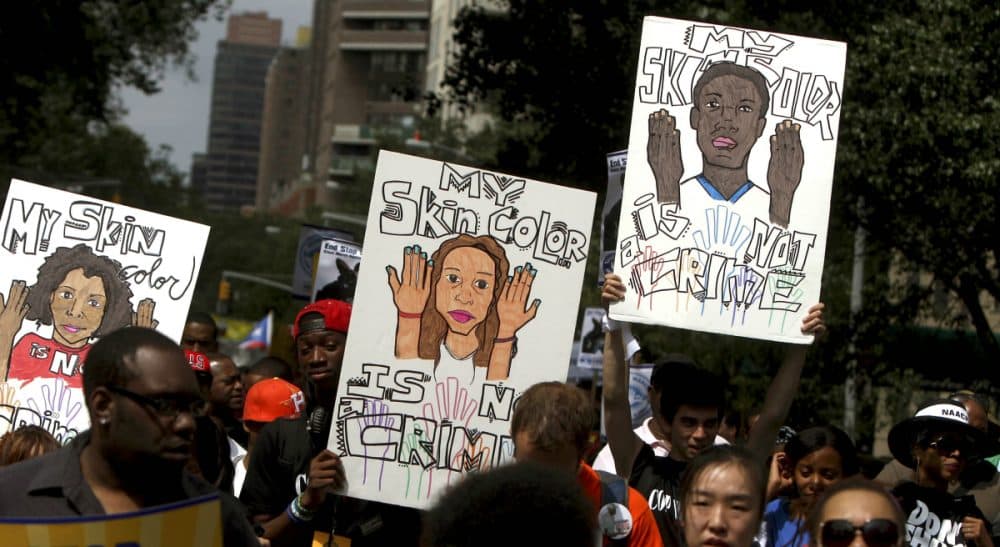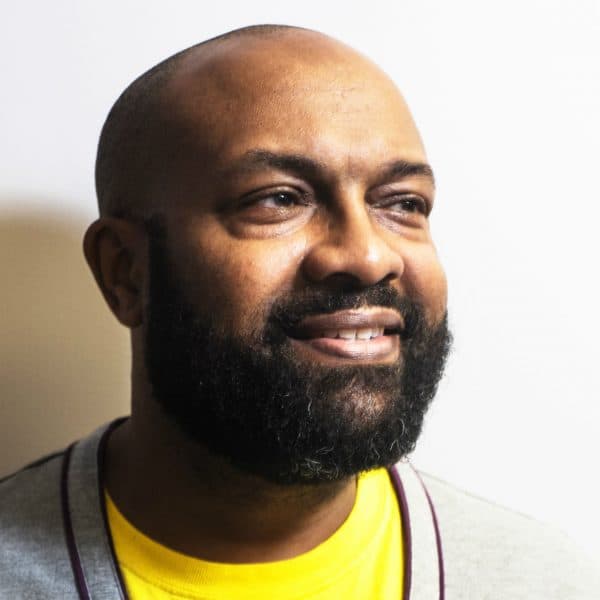Advertisement
Driving While Black, While Not Actually Driving

Thursday, June 25, was mostly auspicious. I had lunch with the president and a vice president of the college where I’ve served as an associate professor for five years. Over lunch in a room offering a panoramic view of the Boston Common, a colleague and I received awards for our exemplary practice of diversity and inclusion on behalf of our students. The announcement accompanying the award noted my work as a mentor, advocate and role model and thanked me for “always showing up.”
According to police in Newton, where I’ve lived in relative peace since my arrival here, I am also capable of “showing up” in two places at the same time.
When I challenged [the citation-issuing officer's] observation, he snorted dismissively, turned his back and said, over his shoulder, that he’d see me in court.
A citation waiting for me in my mailbox at home that afternoon informed me I had been ticketed for driving without a license on Monday, June 22. The document also accused me of committing the infraction at a Newton intersection at 6:15 p.m. I was in Boston at that time, preparing to leave my office and meet my wife — via the B branch of the Green Line — at Boston Playwrights' Theatre.
According to the officer who filed the incident report, “My attention was drawn to the vehicle as the operator upon observing me immediately looked nervous and quickly turned his head forward and continued driving.”
It's true that I don't have a license. I also don't drive. Although I've had a license in the past, it is, indeed, expired. The officer's incident report notes that he saw my plates and made a visual confirmation by looking up my photo in the Mobilecop database. My wife is the only person who drives the car, and she has a receipt proving that she was in a retail store in Watertown at the time noted on the ticket. How and when the officer became aware of me and/or our minivan remains a mystery.
As soon as we read the citation, my wife and I both realized that the officer had made an error. I went to the police station and informed him of my actual whereabouts at the time in question. While his supervising lieutenant watched, the officer looked me in the eye and assured me that I was the man he had seen. When I challenged his observation, he snorted dismissively, turned his back and said, over his shoulder, that he’d see me in court.
Since that meeting, I have collected receipts, printed out my iPhone locator record and solicited witness statements from colleagues who saw me on campus when I was allegedly in Newton. I have requested a hearing, and I look forward to challenging the citation.
As a journalist and cultural critic, I have written extensively about police brutality, tracing its roots to sadistic treatment of enslaved people in the West Indies and the emergence of slave patrols in the slave-holding British colonies. I have written about for-profit policing in the United States, outlining its connection to disproportionate incarceration and the fattened coffers of companies such as the Corrections Corporation of America. I have written articles and given speeches about African-Americans, Latinos and trans Americans harassed by stop-and-frisk practices in cities such as New York. I have written glowing endorsements of the Black Lives Matter movement on social media and in the NAACP’s Crisis magazine. As a private citizen, I have survived uncomfortable encounters with law enforcement in various cities, all of which could easily be described as petty annoyances.
But I have also written about the cumulative effect of a lifetime of such annoyances, their insidious power to influence the way black people like me move through public spaces, the adjustments we make and the postures and expressions we adopt in vain attempts to make ourselves less likely to attract unwanted attention. These futile attempts at discreet citizenship, plus our knowledge of others’ similar experiences via social media, can and do result in what psychologist Monica Williams calls “vicarious traumatization.” Further complicating our experience is the realization that all of our micro-adjustments inevitably fail. In the worse cases, they end in death.
I have been active in community affairs throughout my residence in Greater Boston. I have served as a board member of PEN New England and as a keynote speaker, moderator or panelist at venues such as Suffolk University Law School, Harvard’s American Repertory Theater, Cambridge Forum and Microsoft’s New England Research and Development Center. Most recently, I became a member of the Boston Creates team, helping to promote community conversations among Bostonians about their vision for the arts in the city. My service to Boston-area communities, while rewarding, nevertheless hangs by a tenuous thread, its vulnerability exposed by an overzealous policeman who is either patently dishonest or unable to distinguish one black citizen from another.
My service to Boston-area communities, while rewarding, nevertheless hangs by a tenuous thread, its vulnerability exposed by an overzealous policeman who is either patently dishonest or unable to distinguish one black citizen from another.
After my visit to the police station, I couldn’t help thinking of Supreme Court Justice Clarence Thomas’s recent — and delusional — dissent in the Supreme Court’s extension of the right to marry to all Americans. Dignity is innate, according to Justice Thomas. “Slaves did not lose their dignity (any more than they lost their humanity) because the government allowed them to be enslaved,” he wrote. “Those held in internment camps did not lose their dignity because the government confined them.”
Perhaps Justice Thomas’s revisionist history stems from the world in which he lives, replete with scurrying assistants, chauffeurs and sycophantic would-be wielders of policy. Too frequently, my world is populated by people of a different sort, including drugstore employees who try but fail to subtly follow me and my teenage son from aisle to aisle, the pony-tailed commuter rail conductor who pointedly refuses to acknowledge the greetings of black passengers, to colleagues who consistently confuse me with one of the handful of other African-American men who teach on my campus. All of these interactions are affronts to one’s dignity and sense of belonging. While they cannot reasonably be compared to the experiences of enslaved people, it isn’t difficult to detect echoes of their ordeal.
In his introduction to the landmark study "Black Metropolis," Richard Wright wrote eloquently of African-Americans simply desiring to live in urban spaces “compatible with the dignity of their aspirations.” As an African-American who has lived in both black and white communities, I am still searching for that space.
A Note From The Editors: The Newton Police Department had no comment. But The Boston Globe quotes Newton Chief of Police Howard Mintz as saying, “The court system is involved to resolve the matter.”
